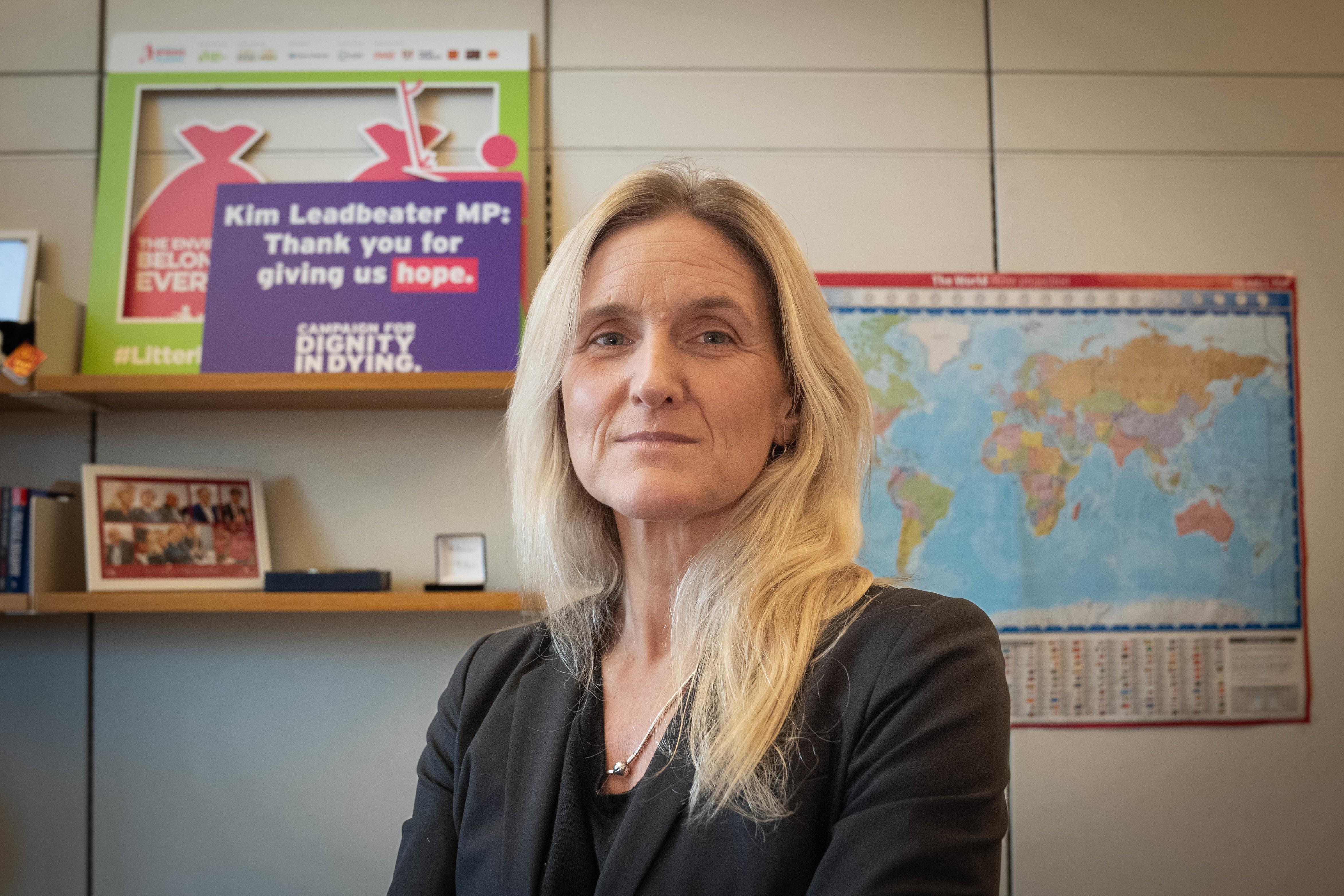Kim Leadbeater defends assisted dying Bill in face of efforts to stop it
Four former prime ministers have said they are opposed to the legislation although none will have a vote on Friday.

Your support helps us to tell the story
From reproductive rights to climate change to Big Tech, The Independent is on the ground when the story is developing. Whether it's investigating the financials of Elon Musk's pro-Trump PAC or producing our latest documentary, 'The A Word', which shines a light on the American women fighting for reproductive rights, we know how important it is to parse out the facts from the messaging.
At such a critical moment in US history, we need reporters on the ground. Your donation allows us to keep sending journalists to speak to both sides of the story.
The Independent is trusted by Americans across the entire political spectrum. And unlike many other quality news outlets, we choose not to lock Americans out of our reporting and analysis with paywalls. We believe quality journalism should be available to everyone, paid for by those who can afford it.
Your support makes all the difference.The MP behind the assisted dying Bill has insisted it is taking “absolutely the right route” through Parliament after it was criticised as an “utterly inadequate” way to deal with the controversial issue.
Kim Leadbeater defended the level of scrutiny her Terminally Ill Adults (End of Life) Bill will get after a group of MPs mounted a bid to halt the plans going through the Commons.
The Bill is due to have a five-hour debate on Friday – the first such debate in the Commons on the issue in almost a decade – with a vote expected at the end on whether it should pass through to be scrutinised by a committee.
Meanwhile, it has been confirmed that former prime ministers Liz Truss, Boris Johnson and Baroness Theresa May all oppose the Bill.
None of them will have a vote on Friday but Baroness May would if the Bill reached the Lords.
Former prime minister Gordon Brown last week voiced his opposition to the legislation, insisting the focus should be on better end-of-life care.
Dame Esther Rantzen, who is terminally ill and has been a high-profile supporter of the campaign to legalise assisted dying, has called on “as many MPs as possible” to attend the debate.
In a letter, released through pro-change campaign group Dignity in Dying, she urged MPs to be in the Commons to “listen to the arguments for and against, and make up your own minds, according to your own conscience”.
The broadcaster and Childline founder described it as a “vital life and death issue”.
An amendment revealed on Tuesday, backed by six cross-party MPs, raised concerns about the level of debate and scrutiny before any vote on Friday, and called for an “independent assessment” of the provision of palliative care.
The amendment would “decline” to give a second reading to the Bill but whether or not it is voted on would depend on whether it is selected by the Speaker.
Ms Leadbeater said the development was “disappointing”.
She told BBC Radio 4’s Today programme: “The route of the private member’s bill is absolutely the right route for taking this legislation through. That means that there can be a free vote by all MPs. It is not a Government Bill.
“The Government has a neutral position on this and, sadly, the amendment that a handful of MPs have put forward is disappointing in that the public clearly want this debate to take place, and I think we’ve got responsibilities as parliamentarians to make sure that that debate does take place.”
Liberal Democrat MP Munira Wilson, who is backing the amendment, told the PA news agency that she is “concerned about the process or lack thereof” over what could be a “monumental change in legislation”.
This is not people who want to end their lives, it's people who are dying. And we have to think about that, and that's why it's about 'assisted dying'
Ms Leadbeater said the debate on assisted dying generally “has been going on for decades”, and she believes “this Bill will receive more scrutiny and more discussion and more debate, probably, than any piece of legislation”.
Ms Leadbeater also said the role of High Court judges in any assisted dying process under her Bill is “really, really important” and not a rubber-stamping exercise.
This followed comments from a former Lord Chief Justice, Lord Thomas of Cwmgiedd, who said this week that “no-one has grappled with the detail” of the impact that assisted dying legislation could have on the court system.
Ms Leadbeater said while it would be a new area of work for judges, they are “used to making these difficult and complex decisions and being part of this process”, citing current procedures around decisions on turning off life support machines for terminally ill people.
She also described the term “assisted suicide”, used by some campaigners opposed to a change in the law, as “quite offensive to some people”.
She added: “This is not people who want to end their lives, it’s people who are dying. And we have to think about that, and that’s why it’s about ‘assisted dying’.”
The Bill, which covers England and Wales only, proposes terminally ill adults with less than six months to live who have a settled wish to die should be able to do so with the approval of two doctors and a High Court judge.
Opposition campaigners have expressed concerns around possible coercion and vulnerable people feeling pressured to take their own lives.